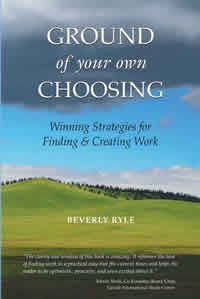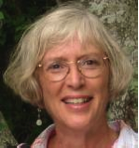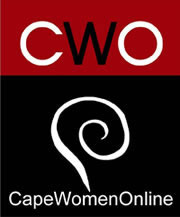CapeWomenOnline - Where Cape Women Shine
Your local venue for the women of Cape Cod to share their ideas, experiences and resources while inspiring each other in their life's journey
Inspire . Encourage . Network . Share
Sad Song Made Better
by Beverly Ryle
I grew up to the Big Band sound, the same sound that WW II soldiers and their girls back home fell in love to, in a time when separation meant under fire in Normandy or North Africa.
In tribute to that musical heritage, my dad and I jitter bugged to Glen Miller’s “In the Mood” when I married for the first time in 1966, two year after the signature music of my own generation made itself known with the Beatles performance on the Ed Sullivan Show.
When Elvis introduced Rock and Roll to white, middle class America on the same program nine years earlier, I’d only been thirteen (which in 1958 was still childhood) and too young to get turned on by his grinding beat or body.
My parents complained about waking up to “You Ain’t Nothing but a Hound Dog,” which seemed unfair given how many times I listened to "Chattanooga Choo Choo.” But I begged for the 45 rpm record with “Don’t be Cruel” on the flip side because everyone else had it—only Bing Crosby's "White Christmas" and Gene Autry's "Rudolph The Red-Nosed Reindeer” sold more copies that year—not because I really like it.
I didn’t get swept away by the first wave of Beatlemania either and was certainly not a screamer. As a sheltered child of the repressive 50’s, it would be several decades before I emitted even a quiet sigh of sexual excitement in private!
The behavior of my peers at live performances shocked and appalled me. But I liked the Beatles energy, the stories they told about people like Eleanor Rigby and Maxwell Silver Hammer and the poignancy of their repeated refrains which became a sound track for my life.
Although I don’t remember having much time to listen to music after I got married and had four children in five years, I know the Beatles were still with me because I named the miniature half poodle/half terrier we selected as the family pet, Sergeant Pepper.
His name often brought more delight than his actual presence in the household as he was too hyper for young children, barked more than the neighbors could tolerate and nipped delivery men.
Despite his transgressions (or perhaps because of them) the children and I regularly marched around the house singing “We’re Sergeant Pepper’s Lonely Hearts Club Band, we hope you will enjoy the show.”
I turned off any music that might fill my heart with a sense of fun, joy or purpose for the next dozen years until the sound of silence was broken by a 40th birthday gift, Simon and Garfunkel’s Bridge Over Trouble Waters album. It brought me back to life, at least musically, and to the Beatles, but their songs had another meaning.
Knee-deep in a deteriorating marriage, their love-gone-wrong melodies fed self-indulgent longing and regret. I wallowed in the ones that allowed me to see myself as an all-loving, all-suffering, tragic heroine.
The part of me that wanted to hide instead of face the fact that my “problems were here to stay” listened to the Yesterday track over and over.
The closer I got to initiating a separation from the house and family life my husband and I had built together, the more I cried when Paul sang, “Once there was a way to get back home” in the opening line of Golden Slumber.
Reduced to the lyrics of a few songs, the unfolding family drama could become all about me, rather than a milestone event which would affect not only my life, but the lives of my sick and suffering alcoholic husband and vulnerable high school-age children for a very long time.
Just as I’d listened to show tunes for solace when my parents fought their un-win-able battle, now, as my husband and I were engaged in the same dynamic, I turned to the Beatles and they provided justification for feeling sorry for myself and safe distance from emotions I could not yet feel.
In my post-divorce life, I married a musician who exposed me to many new musical experiences, including the really good Rock and Roll I’d missed in the 70s from groups like The Band. After The Last Waltz album, I felt more sentimental about the Beatles repertoire than moved by it, until the other night when I heard their songs again live, with a full orchestra, at a Paul McCartney tribute concert.
Here was the same music I’d danced to in college meeting me again in a different place in my life; this time to grieve not the loss of a lover, but of a son, who has been separated from the family since my father’s death in January of 2011.
My only son, through no fault of his own, is the only male descendant of a grandfather who never heard the Beatles sing “Money Can’t Buy Me Love.” A man so driven to dominate the lives of the people around him, he used his financial resources to control others and succeeded in doing it posthumously by giving my son power over his estate and female relatives.
A position my very bright and sensitive son accepted, and by doing so got trapped between a commitment to patriarchal dominance and doing the right thing. What else can you do, when you’ve been enlisted to enforce Old Testament rights of succession in a family where not all the women will quietly submit, than to push away those who raise questions?
I’d wrestled with the pain resulting from my son’s loyalty to his grandfather for almost two year, but now lyrics from a Beatles song I’d always love expressed the consequences of my son’s choices to him— “Boy, you're gonna carry that weight… Carry that weight a long time.”
What mother wouldn’t want her prodigal son to find a way back home again? So she’d see his face and hear his voice; so she’d once again be able to be a grandmother to his three children?
But sitting in Row G, seat 18 at the Barnstable Performing Arts Center as Tony Kishman, who portrayed Sir Paul, sang the familiar refrain my own litany of losses faded. My thoughts were only of my son, his journey through life and how empty it might become if he never learned the Beatles lesson that no matter what your worldly accomplishments, in the end “the love you take is the love you make.”
For a little while my sadness for him was overpowering, but the show moved on and a few song later “Mother Mary to came me…speaking word of wisdom…there will be an answer…let it be.”
And by the time they did “Hey Jude” for an encore, I realized I’d been clapping, tapping and dancing in my seat—to the cringe of the white-haired woman, only a few years my senior, sitting beside me –for most of the concert and had had a wonderful time.
As a full house of fellow, over-65 Beatles fans raised their hands and swayed to “Na na na na”, I knew why…I’d remembered to let a sad song into my heart so I could start to make it better, better, better, better…
An Invitation to Break Out of the
Pack and Try Something Different!

Available at
Ground of Your Own Choosing
Or Amazon.com

In her professional roles as a career counselor and business consultant, Beverly Ryle has been helping corporate professionals, business owners, and people-in-transition achieve their full potential through education and empowerment for over twenty-five years.
Her ability to guide clients through a professional development process is built upon expertise in transition, communications, negotiations, Gestalt training and long-term experience as the only recovering person in a dysfunctional family. Her integration of business, counseling and spiritual disciplines has made her a vital resource for clients seeking to grow professionally by overcoming habitual patterns in order to claim greater authenticity in their work and interpersonal relationships.
In her first book, Ground of Your Own Choosing: Winning Strategies for Finding & Creating Work, she focused on ways of achieving self-leadership in your professional life.
In her second book, Standing Alone (now under development), she turns her attention to helping people enhance their potential for leadership within the context of family dysfunction, including rampant, multi-generational addiction and mental illness. Standing Alone is a collection of memoirs and short essays in which she tells both her own personal story and the more universal story of the possibility of renewal and joy whatever your life circumstances.
She will launch a website to preview the book before it is published (and to honor her 68th birthday) in mid-November.
Her blog can be found at www.beverlyryle.com/newsletter-blog. She welcomes comments or questions on the site or by direct email to bev@beverlyryle.com. www.BeverlyRyle.com


